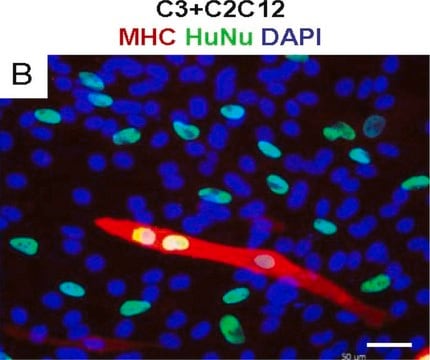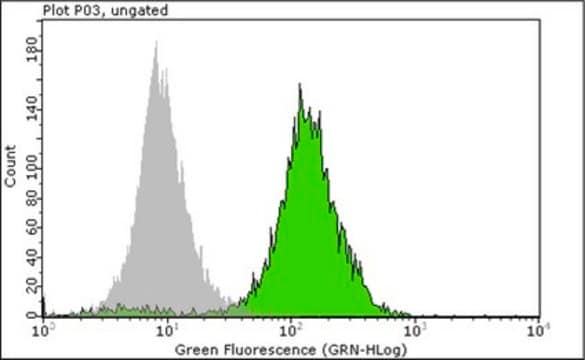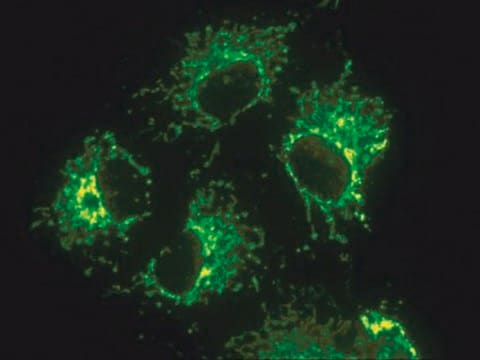MAB1281A4
Anti-Nuclei Antibody, clone 235-1, Alexa Fluor™ 488 conjugate
clone 235-1, from mouse, ALEXA FLUOR™ 488
Synonyme(s) :
HuNu
About This Item
Produits recommandés
Source biologique
mouse
Niveau de qualité
Conjugué
ALEXA FLUOR™ 488
Forme d'anticorps
purified immunoglobulin
Type de produit anticorps
primary antibodies
Clone
235-1, monoclonal
Espèces réactives
human
Technique(s)
immunocytochemistry: suitable
Isotype
IgG1
Conditions d'expédition
wet ice
Modification post-traductionnelle de la cible
unmodified
Description générale
Immunogène
Application
Stem Cell Research
Stem Cell Research
Pluripotent & Early Differentiation
Developmental Neuroscience
Mesenchymal Stem Cells
Neurodegenerative Diseases
Qualité
Forme physique
Stockage et stabilité
Remarque sur l'analyse
Human foreskin fibroblasts (SCC058)
Autres remarques
Informations légales
Clause de non-responsabilité
Vous ne trouvez pas le bon produit ?
Essayez notre Outil de sélection de produits.
Code de la classe de stockage
12 - Non Combustible Liquids
Classe de danger pour l'eau (WGK)
WGK 2
Point d'éclair (°F)
Not applicable
Point d'éclair (°C)
Not applicable
Certificats d'analyse (COA)
Recherchez un Certificats d'analyse (COA) en saisissant le numéro de lot du produit. Les numéros de lot figurent sur l'étiquette du produit après les mots "Lot" ou "Batch".
Déjà en possession de ce produit ?
Retrouvez la documentation relative aux produits que vous avez récemment achetés dans la Bibliothèque de documents.
Notre équipe de scientifiques dispose d'une expérience dans tous les secteurs de la recherche, notamment en sciences de la vie, science des matériaux, synthèse chimique, chromatographie, analyse et dans de nombreux autres domaines..
Contacter notre Service technique







